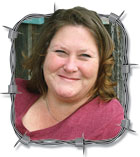
As I think about topics for my columns here in Ozarks Farm & Neighbor, I jot down notes of things I might like to address so I can do a little more research before writing. The stack, however, is too big this time to focus on just one or two things.
There’s the investigation into the big meatpackers and market manipulation, the claims of food shortages, foreign meat brought into the U.S., the pandemic, and the list goes on, and each item seems to be intertwined with the other. If you pull one string, the others ball up to make it an even more complex knot, and the more you try to work at untangling it, the worse the knot gets.
Claims are circulating that there will be a shortage of food lasting up to two years, sending consumers into a panic. In my opinion, people tend to create their own panic. How can there be a shortage of food if producers are dumping milk and tossing eggs, and there are threats of mass livestock euthanizations, keeping food out of the supply chain? Seems there’s a problem somewhere in the middle.
One positive in the farming world today is more and more people finding ways to connect directly with farmers. I have several friends who are direct marketing their farm products, and they are seeing an upswing in demand. A few are even talking about adding animals to their production rotations. That’s good news, but it’s hard to direct market 20, 50, 100 or more slaughter-ready animals, tons of raw milk or thousands of eggs at one time, so many producers are dependant on those guys in the middle. Be sure to watch our Facebook page and our print edition for announcements about a new product we’re working on to connect consumers directly to producers.
I feel it’s time to reconsider a labeling system that allows consumers to know exactly where their food comes from, such as the country-of-origin labeling that was repealed by federal lawmakers in 2015. Let the consumer decide if they want food from Canada and Brazil (the largest exporters of beef to the U.S.), or meat from an animal that was born, raised and processed in the U.S. Why is it that I can pick up just about any item on my desk and read where it was manufactured, yet if I pick up a package of meat in the grocery store I know nothing more than the weight and the price?
It’s a challenge these days to be a farmer and/or rancher, but we’ve faced challenges before. The challenges today may be different than those in the past, but the one thing that has remained constant is that farmers and ranchers are some tough cookies and we have generations of past, present and future generations to prove it.
We will make it through these hard days. We have to keep the faith and keep farming.
Julie
Julie Turner-Crawford is a native of Dallas County, Mo., where she grew up on her family’s farm. She is a graduate of Missouri State University. To contact Julie, call 1-866-532-1960 or by email at [email protected].






